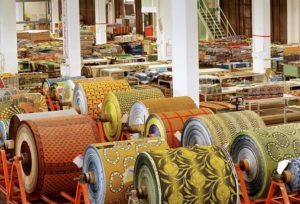The Nigerian Textile Manufacturers’ Association (NTMA) has warned that the industry would face extinction unless the Central Bank of Nigeria would allow manufacturers access to foreign exchange.
The Director-General, NTMA, Mr. Hamma Kwajaffa, who gave the warning on Monday, urged the CBN to allow NTMA members access to forex.
He said that the industry is on the brink of crisis as the few existing textile manufacturers are set to suspend production due to non-availability of forex for procurement of raw materials.
The apex bank had on November 7 said that $660m was released to manufacturers through the inter-bank market to source raw materials and spare parts.
Kwajaffa, however, said that no textile manufacturer had accessed foreign exchange, in spite of the numerous letters of credit by them.
He said, “To access foreign exchange, we have to go through our banks; but our banks keep telling us that they do not have foreign exchange to give.
“The situation has impeded our production activity because most of our production components cannot be sourced locally.
“By now, many companies ought to have fabrics in the market against Christmas season but they cannot do that.
“Some of the manufacturers have already stopped production, and it is becoming difficult to convince others not to suspend production.”
The DG said that the foreign exchange challenge is not only hindering production but also efforts at revitalising the textile industry.
He said, “At the peak of the economic boom in the early 80s, Nigeria had 84 textile mills. The number has dropped to 24 now.
“The workforce in these industries nationwide has also been reduced from 250,000 to about 20,000.
“Worried about the situation, government has been making frantic efforts through consultations and intervention funds to revive this ailing sector.
“But the present situation might cripple all efforts geared towards injecting life into the industry.
“A lot is at stake if the present situation is not addressed urgently.”
Kwajaffa called for improved collaboration between the apex bank and commercial banks in the allocation of foreign exchange to manufacturers.
He said that textile manufacturers’ access to raw materials would translate to enhanced production, job creation, a thriving textile industry and increased contribution to gross domestic product.
